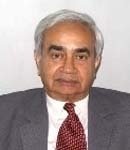The Indian Elections: Why Everyone Got It Wrong
27 May, 2004 · 1397
P R Chari comments on the unexpected nature of the outcome of 14th Indian Lok Sabha elections
The tables are empty, the dance floor is deserted; and the astrologers, psephologists, print and electronic media persons are busy explaining why they got the last general elections results so wrong. Everyone was surprised, including the political parties that had lost, and have won. Why?
The psephologists and political journalists are busy constructing statistical tables and arguments explaining their failure to anticipate the elections outcome correctly. These range from differences in voter turnout, although it is unclear whether heavy polling indicated the voter’s rejection or a reiteration of faith in the incumbent government. Then there is the caste and communal factor on which future-predictors have written tomes, although it remains uncertain how the voter would vote if two or more members of the same caste/community offered themselves as candidates for the same seat. Volumes have also been written on the ‘swing’ factor; which leads to the addition or subtraction of two or three percent in the votes cast making a marked difference to the final results. This is an in-built deficiency of the first-past-the-post voting system followed by India, although the proportional representation system followed by Sri Lanka, for instance, has proved no better.
These self-justificatory, self-exculpatory explanations to clarify explain why the pundits went wrong are inadequate. The truth is that after 13 general elections, and several elections to State Assemblies, local bodiesâ€â€


